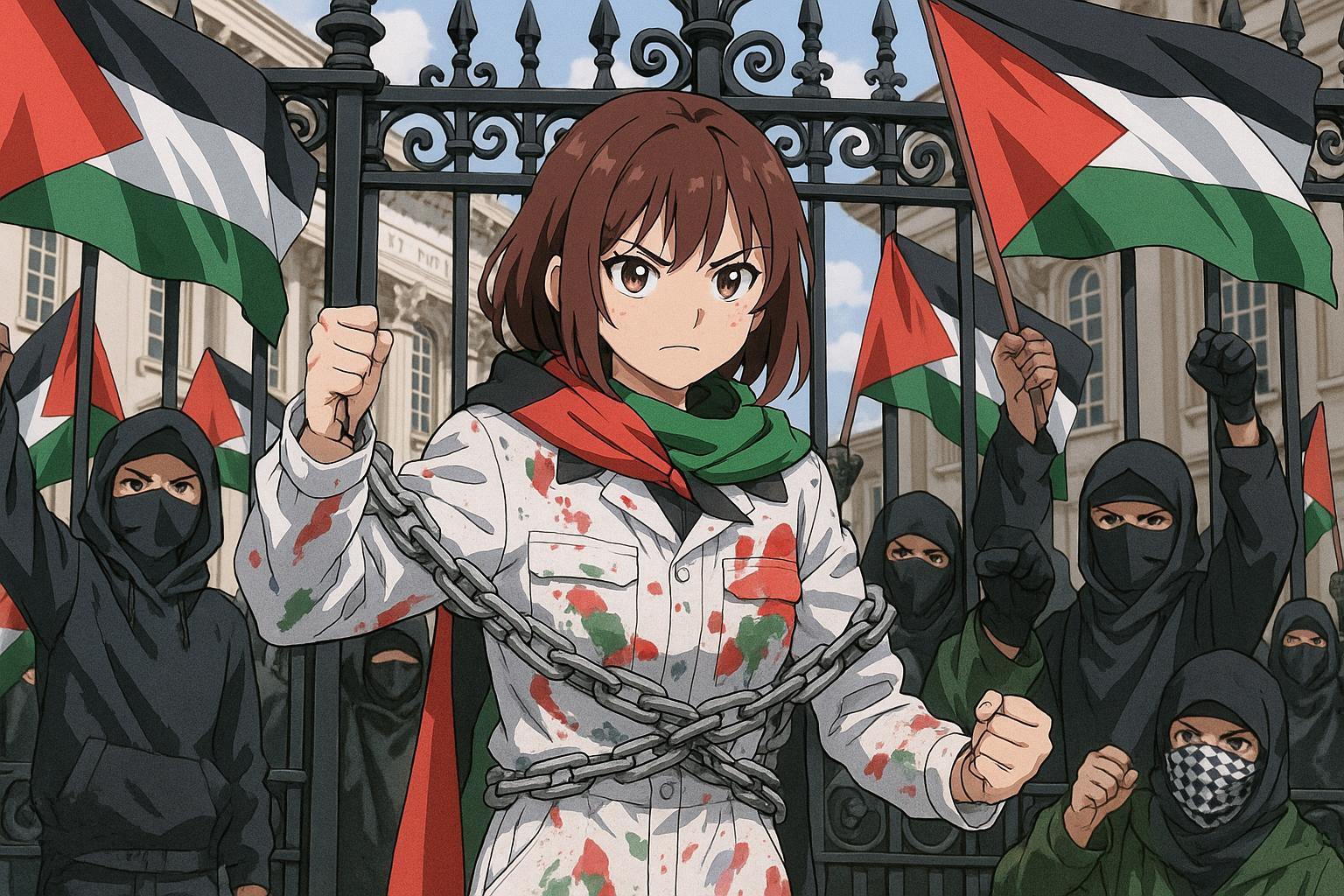A pro-Palestine demonstrator created significant disruption at Cambridge University on May 23, chaining himself to the gates of the Senate House during graduation ceremonies. Dressed in a boiler suit stained with red paint, the protestor used a padlock and zip-tie to secure himself, vocally asserting his stance with chants of "Free Palestine." This act of protest drew attention not only for its theatrics but also for its timing, coinciding with the celebrations of graduates from Queen's, St Catherine's, and Jesus Colleges.
The scene was marked by the presence of around a dozen other demonstrators, who waved Palestine flags and wore face masks, standing in solidarity with the primary protestor. This event unfolded against a backdrop of heightened tensions regarding the university's policies on free expression and protest rights. In March, the University of Cambridge was granted a High Court injunction aimed at banning protests related to Palestine on certain parts of the campus until the end of July 2025, a ruling that has drawn criticism from various human rights groups.
Activists, including those from the student-led group 'Cambridge for Palestine,' have been vocal in their opposition to what they perceive as a chilling attempt to stifle dissent. This group has long campaigned for the university to divest from companies seen as complicit in the ongoing conflict in Palestine. Following public pressure, King's College, which is part of the university, made headlines by pledging to cease investment in arms companies, indicating a shift towards a more socially responsible investment strategy in response to activism.
The High Court's decision to uphold a temporary ban on protests was deemed necessary by the university, which argued that there was a "real and imminent risk" of disruptions similar to past incidents that had marred graduation events. Critics have warned, however, that such legal measures represent an alarming escalation in efforts to silence voices advocating for Palestinian rights. The situation has intensified discussions surrounding the right to protest within academic institutions, with some experts arguing that attempts to restrict protests can infringe on fundamental freedoms.
This demonstrative event is not an isolated incident but part of a growing trend where student activism at Cambridge and other UK universities increasingly challenges institutional relationships related to the Israel-Palestine conflict. The protests have gained momentum in recent years, with more than 100 universities participating in global actions for Palestine, reflecting widespread discontent among the student body regarding institutional complicity in the conflict.
As such, the interaction on the gates of the Senate House not only symbolises a singular protest but also encapsulates a larger movement advocating for fundamental changes in university policies regarding investment and ethical oversight. As the University of Cambridge continues to navigate these complex issues, the balance between maintaining order during ceremonial events and upholding the robust tradition of free speech remains a pivotal challenge.
Reference Map:
- Paragraph 1 – [1], [2]
- Paragraph 2 – [2], [4], [5]
- Paragraph 3 – [4], [6]
- Paragraph 4 – [5], [6]
- Paragraph 5 – [6], [7]
Source: Noah Wire Services
